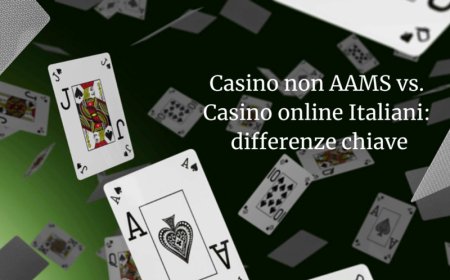How Muslim Organizations in India Empower Communities Through Zakat and Sadaqah
In India, where over 200 million Muslims form a vibrant and diverse part of the population, the role of Muslim organizations has been pivotal in addressing the socio-economic challenges faced by the community.

Introduction
In India, where over 200 million Muslims form a vibrant and diverse part of the population, the role of Muslim organizations has been pivotal in addressing the socio-economic challenges faced by the community. Grounded in Islamic values and humanitarian principles, these organizations operate across the country to provide essential services in education, healthcare, disaster relief, legal aid, and economic support.
Among the many ways they contribute to society, two of the most impactful Islamic practices they uphold are Zakat and Sadaqahacts of giving that serve as spiritual obligations and social tools for poverty alleviation. In this blog, well explore the importance of Muslim organizations in India, the difference between Zakat and Sadaqah, and how institutions like Jamiat Ulama-i-Hind effectively channel these donations to create lasting change.
The Role of Muslim Organizations in India
Muslim organizations in India function as community-based institutions that work to uplift marginalized Muslims while fostering unity, dignity, and progress. Their objectives often include:
-
Providing religious and secular education
-
Ensuring access to justice and legal aid
-
Offering relief during crises and natural disasters
-
Promoting healthcare and livelihood support
-
Preserving Islamic traditions and social ethics
One of the most recognized and respected Muslim organizations in the country is Jamiat Ulama-i-Hind. With a history rooted in India's independence movement, Jamiat continues to lead initiatives that safeguard the rights and welfare of Muslims through faith-based programsespecially Zakat and Sadaqah.
What is Zakat?
Zakat is one of the five pillars of Islam and is a mandatory act of worship. It requires Muslims to give a fixed percentage (usually 2.5%) of their surplus wealth annually to help those in need. It is not just charityits a social obligation aimed at redistributing wealth and eliminating inequality.
Key Purposes of Zakat:
-
Support the poor and needy
-
Aid orphans and widows
-
Help those in debt
-
Empower struggling students
-
Strengthen community welfare
Zakat is designed to create a safety net within the Muslim community, ensuring that no one is left destitute while others have surplus wealth.
What is Sadaqah?
Unlike Zakat, Sadaqah is a voluntary form of charity given at any time, in any amount. It can be money, food, clothing, or even a kind act. Its essence lies in generosity and compassion, and its encouraged as a means of personal purification and societal harmony.
Benefits of Sadaqah:
-
Earns spiritual reward and divine blessings
-
Alleviates the burden of those in crisis
-
Strengthens bonds between individuals and communities
-
Offers a flexible way for Muslims to contribute based on their means
In times of emergencysuch as during natural disasters or health crisesSadaqah becomes a vital tool for quick, compassionate response.
How Jamiat Ulama-i-Hind Utilizes Zakat and Sadaqah
Jamiat Ulama-i-Hind is a leading example of how Zakat and Sadaqah are responsibly and transparently utilized to support Indias Muslim communities. Through its many social and educational initiatives, Jamiat ensures that donations reach the most vulnerable and are used for long-term impact.
Heres how Zakat and Sadaqah are applied through Jamiats programs:
1. Legal Aid and Social Justice
Through its Social Justice and Legal Aid initiative, Jamiat offers free legal assistance to:
-
Victims of wrongful arrests or detentions
-
Families affected by mob lynching or communal violence
-
Individuals denied their constitutional rights
Zakat and Sadaqah funds help cover legal fees, documentation, bail, and rehabilitation support for victims.
2. Educational Support
Jamiat offers scholarships and covers school fees for underprivileged students. Zakat is used to:
-
Sponsor Islamic education through madrasahs
-
Fund university fees for low-income students
-
Provide books, uniforms, and basic supplies
These efforts ensure children from disadvantaged backgrounds do not have to drop out due to financial hardship.
3. Emergency Relief
Whether its a flood, earthquake, or pandemic, Jamiat mobilizes quickly using Sadaqah funds to:
-
Distribute food and water
-
Supply medical kits and medicines
-
Provide temporary shelters and blankets
During the COVID-19 pandemic, such rapid response saved lives and helped thousands who were left jobless or stranded.
4. Livelihood and Rehabilitation
For individuals who have lost their homes, jobs, or businesses due to crises, Zakat helps with:
-
Micro-finance to restart livelihoods
-
Tools and equipment for self-employment
-
Vocational training and skills development
Zakat and Sadaqah: Faith in Action
The beauty of Zakat and Sadaqah lies not just in their spiritual merit, but in their tangible societal benefits. When collected and distributed effectively, these funds create:
-
Educational opportunities for the poor
-
Legal protection for the wronged
-
Healthcare access for the sick
-
Dignity and stability for widows and orphans
By centralizing and managing donations through a credible organization like Jamiat, donors can ensure their contributions are well-utilized, well-documented, and transform lives on a mass scale.
Real-Life Impact: A Case Example
In 2021, during severe communal unrest in parts of North India, hundreds of Muslim families were displaced. Many lost their homes and savings overnight. Jamiat Ulama-i-Hind stepped in using its Zakat and Sadaqah resources to provide:
-
Temporary housing for affected families
-
Legal assistance to release innocent detainees
-
Food, clothing, and medical aid for those in camps
What could have been a forgotten crisis became an example of how organized giving, guided by faith, leads to real-world change.
How You Can Participate in This Mission
If youre someone who believes in social justice, community welfare, or fulfilling your religious obligations, heres how you can contribute:
1. Calculate and Give Your Zakat
Ensure you give your annual Zakat to trusted institutions like Jamiat that distribute it responsibly.
2. Give Sadaqah Regularly
Even a small daily or weekly contribution can support a hungry family or a childs school needs.
3. Sponsor a Cause
Support legal aid, education, or health initiatives by pledging to a specific program.
4. Raise Awareness
Share campaigns, blogs, or success stories through your social networks to encourage more donors.
5. Volunteer Your Skills
Lawyers, teachers, and medical professionals can make an enormous difference by offering their expertise.
Conclusion
Muslim organizations like Jamiat Ulama-i-Hind demonstrate how faith-inspired action through Zakat and Sadaqah can lead to significant, long-lasting impact. By investing in education, justice, health, and dignity, these efforts go beyond charitythey build resilience, inspire hope, and shape a more just society.
As we navigate the challenges of inequality, injustice, and poverty, let us remember that every rupee given with sincerity and intention can illuminate someones life. Whether you give Zakat annually or Sadaqah frequently, your contribution matters.
Let your generosity be guided not just by duty, but by the vision of an empowered and united Ummah.
Frequently Asked Questions (FAQ)
1. What is the difference between Zakat and Sadaqah?
Zakat is obligatory charity given annually (2.5% of ones wealth), while Sadaqah is voluntary and can be given anytime. Both are powerful means of helping the poor and fulfilling Islamic duties.
2. Can I give Zakat through an organization like Jamiat Ulama-i-Hind?
Yes. Jamiat ensures Zakat is distributed to eligible recipients transparently and effectively across its programs in education, legal aid, and relief.
3. How do Muslim organizations use Sadaqah funds?
Sadaqah is often used for emergency relief, food distribution, orphan support, and healthcareany area that requires immediate, compassionate action.
4. Is my Zakat eligible if I donate it online?
Absolutely. As long as it's given to a trustworthy organization and reaches eligible beneficiaries, online Zakat donations are valid.
5. Who are the beneficiaries of Zakat and Sadaqah through Jamiat?
Recipients include poor families, orphans, widows, students, and victims of injustice or disastersall verified through community outreach and documentation.
6. How can I calculate my Zakat properly?
Zakat is typically 2.5% of savings and surplus wealth held for a lunar year. You can use online Zakat calculators or consult your local Islamic scholar for accuracy.






































